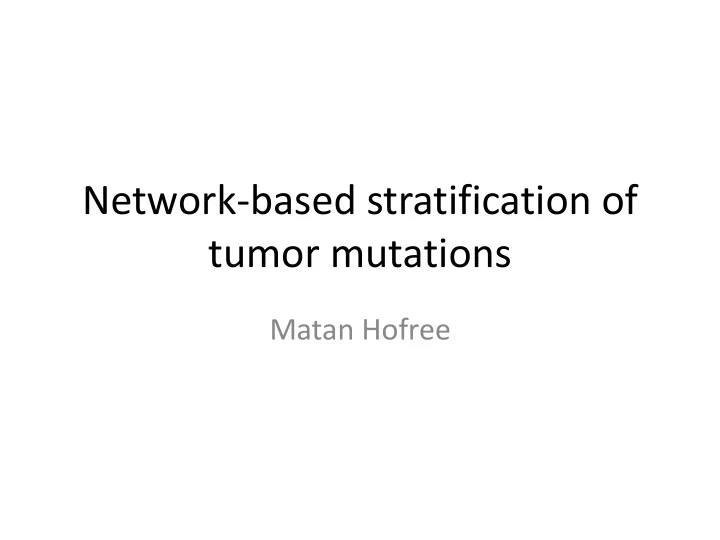

Network-based stratification of tumor mutations Matan Hofree
Goal • Tumor stratification: to divide a heterogeneous population into clinically and biologically meaningful subtypes based on molecular profiles
Previous attempts • Glioblastma and breast cancer – mRNA expression data • Colorectal adenocarcinoma and small-cell lung cancer – expression data not correlate with clinical phenotype
Somatic mutation profile • Compare the genome or exome of a patient’s tumor to that of the germ line • Sparse
Overview of network-based stratification Binary (1,0) Public Interaction network
Network smoothing • F t+1 = α F t A + (1- α)F 0 F 0 : patients * genes matrix A: adjacency matrix of the gene interaction network (STRING, HumanNet and PathwayCommons) α: tuning factor that determines how far a mutation signal can diffuse
Network-regularized NMF • Min || F – WH || 2 + trace(W t KW) Patient * gene matrix W: a collection of basis vectors, “ metagenes ” H: the basis of vector loading Trace(W t KW): constrain the basis vectors(W) to respect local network neighborhoods K: derived from the original network
Simulation Assessment K=4 Driver mutation f: 0% to 15% The size of network modules: 10-250
Results- NBS of somatic tumor mutations
Results-Predictive power and overlap of subtypes derived from different TCGA datasets
Network view of genes with high network- smoothed mutation scores in HumanNet ovarian cancer type 1
From mutation-derived subtypes to expression signatures
Effects of different types of mutations on stratification
Recommend
More recommend